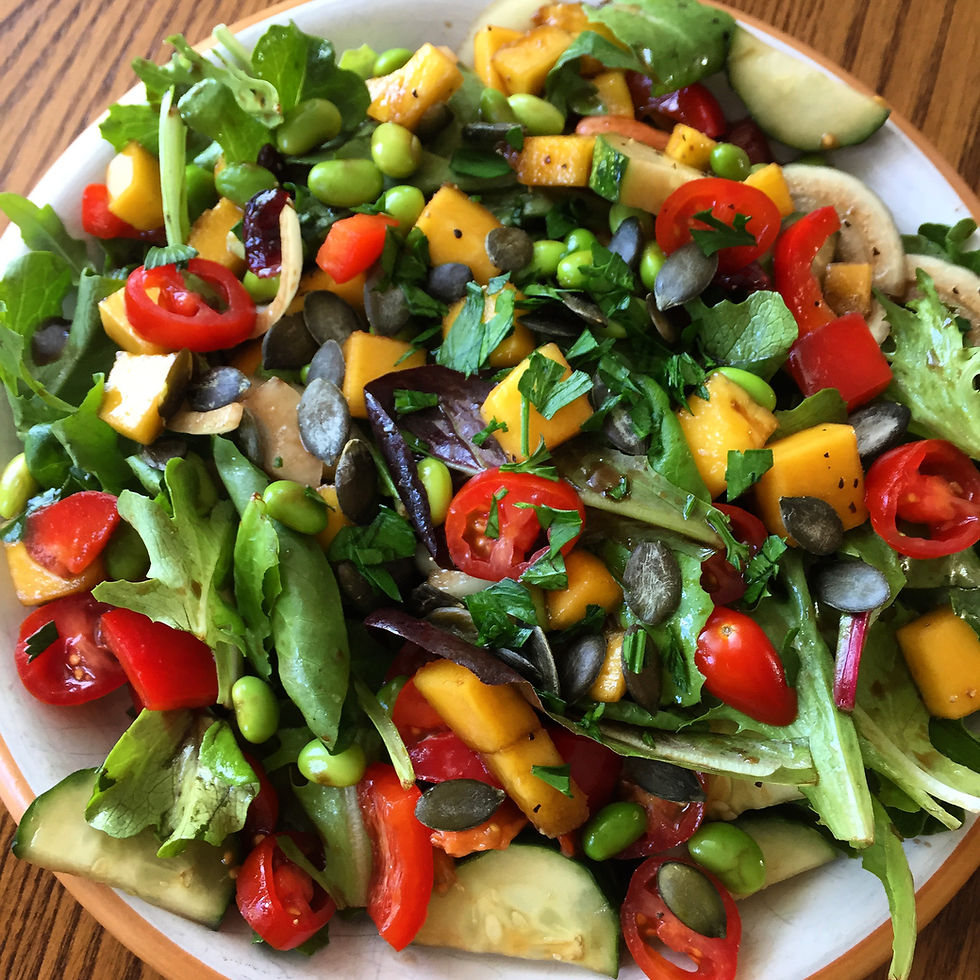Meal prepping can save you time and money, but it doesn't have to be a headache! There's no need to overcomplicate things or strive for perfection. Test things out for yourself and find a good system -- trial and error can be a beautiful thing! Read on for some helpful tips to consider when meal prepping.
Contrary to popular belief, you don't have to spend a boatload of money on fancy tupperware containers for your meals. Heck, I save glass jars from salsa or glass Argo tea bottles and use them for overnight oats or snacks. Not everything has to be uniform! Preparation outweighs aesthetic.

If your grocery store has a limited selection of produce, first check your area for a farmer's market. Nothing like supporting your local farmers! If you have no luck, consider ordering from Misfits Market (if you are in their distribution areas). Misfits Market is a weekly or biweekly subscription that delivers fresh, "imperfect" groceries right to your door. They call it "ugly," but honestly most produce that I've received from them has been quite beautiful. It's a wallet-friendly way to get fresh produce and they typically have a wide variety available. You can also order meats and pantry items from them (full disclosure: I have had some issues with boxes of crackers being smashed and rice been spilled throughout the delivery box). I'm not paid by them, I just like the company. Click here to check them out.
Have an idea of what you want to eat for the week before you go grocery shopping! Find the recipe(s) you are going to use, and make a list of ingredients you need. If you're like me and never use recipes, then at least write down what you're going to be eating at each meal for the week. Form a concrete grocery list and STICK TO IT. This will help in two ways:
1. Little to no food waste because you're not buying food that you don't need.
2. No temptations! You won't buy those cookies or chips that whisper your name from the pantry if they're not on your list. Of course you can treat yourself, but if you're prone to eating the whole bag in one sitting, then you're probably just better off keeping them out of your home until you acquire better self-control.

On the topic of self-control: Buy a food scale. Just do it. Even if you just use it for your proteins! This is the most accurate way to measure out your food while following a meal plan or tracking your macros. Even if you don't count macros, but you want to prevent yourself from overeating, a food scale can be a very helpful tool. I don't recommend using a food scale forever, but it can be very sobering to see what a true serving size is. Try not to obsess over numbers and measurements, but use them to build awareness around your food habits. Ever say, "Oh I'll just have one" to that bag of delicious potato chips? 1 chip, 2 chips, 3 chips, 4... oops, now there are no more. Yeah, we've all been there -- maybe just with less Dr. Seuss and more crying. Anyway, try weighing out ONE SERVING of your favorite snack and put the bag away before you start munching. This allows you to satisfy your craving, while preventing mindless munching.
Ever notice that your (raw) carrots and celery get dried out or soften up after being in the fridge for a while? Don't dump your floppy veggies in the trash! Try cutting them up and storing them in a container of cold water. This will revive your veggies or prevent them from losing their crunchy quality in the first place.
Avoid using fish or shellfish in your meal prep. A rookie mistake (speaking from experience). Unless you're only prepping for 2-3 days at a time, I would recommend using a different protein source in place of fish. Once prepared, fish and shellfish only stay "good" in the fridge for up to 3 days. If it's been in the fridge longer than that, THROW IT OUT. It's not worth getting sick because your prepped fish went to sh*t.

Salad? Keep it naked until you're ready to eat it. Dressing your salad too early causes the dreaded soggy greens syndrome. (No one likes soggy lettuce -- if you do like soggy lettuce, please exit this webpage now.) Sure it can seem like a good idea to prep EVERYTHING and have it ready to eat at any given time, but then you're sacrificing quality for convenience. Somethings are better as separate parts until you are ready to assemble it.
Meal prepping should decrease your stress, not increase it. Remember to keep things simple and find what works best for you. Be sure to "like" this blog post if you found it helpful. Thanks for reading!

Comments